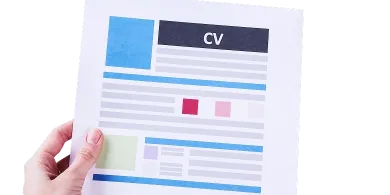Table of contents

It’s not a secret that some employers request a list of references written either in your resume or throughout the interview. Since it’s no anymore an issue to check references through the internet, revealing the truth has become more effective and much faster.
Therefore, even if your job application doesn’t request you to include any references, it would be a good idea to have them done beforehand and ask a certified resume writer to organize the list.
After all, your references would always be a nice addition to the application, especially in cases, when your employer has some doubts about your candidacy. Wonder how to make a properly formatted resume reference page? Resume Writing Lab gives the answers – just read the following.
Obtaining references can be quite a long-lasting job, especially when you are trying to collect more than you’re required to. So, why would you need to make extra pieces of references anyway? The thing is that you never know what document you would receive. Besides, most likely someone wouldn’t do the work in time.
If you wonder who can write the best recommendation letter that will definitely work out for your benefit later, think of someone you used to have a good professional or educational experience with. For instance, if there’s a college class you always got excellent grades in, then why won’t you ask the professor or a dean to make a reference to your class progress? You may do the same thing with former employers or even request a letter from your volunteering partner.
Appealing to your church mentors, coaches, or fellow athletes, in case you’ve ever done sports, is appropriate as well. By the way, feeling the support of other people can overcome job search fears.
When you choose several suitable candidacies, talk to them about certain details of your reference. Ask them to be specific, when they make descriptions of your personal character traits. Let them make an emphasis your best skills and qualifications. If it’s your former employer, he could focus on the excellence of your professional skills, versus a soccer coach may describe your diligence or emphasize your leadership skills in teamwork, etc.
Obviously, your entire resume should represent yourself from the best point. However, it doesn’t mean you have to include them all – 3 to 4 recommendation letters would be more than enough.
How to decide which references are more beneficial? For this case, you can divide letters into one of those 2 groups:

This may help you pick up the best letter out of each group. Afterward, you might want to thank each person individually and ask for permission to give out their contacts to your employer. Reporter of Businessweek Francesca Di Meglio reminds everyone about the importance of being thankful during the job search.
Besides a references list that goes along with your resume (if it’s required), include your education, work history, skills, and awards on the page before your list. Also, remember that your references have to include names, titles, companies, addresses, phones, and emails. And keep in mind that you can change your reference list according to the requirements of particular job positions you would like to apply for.
 More Tips:
More Tips: